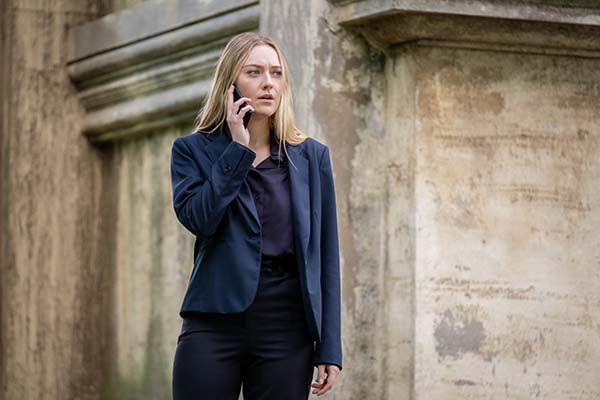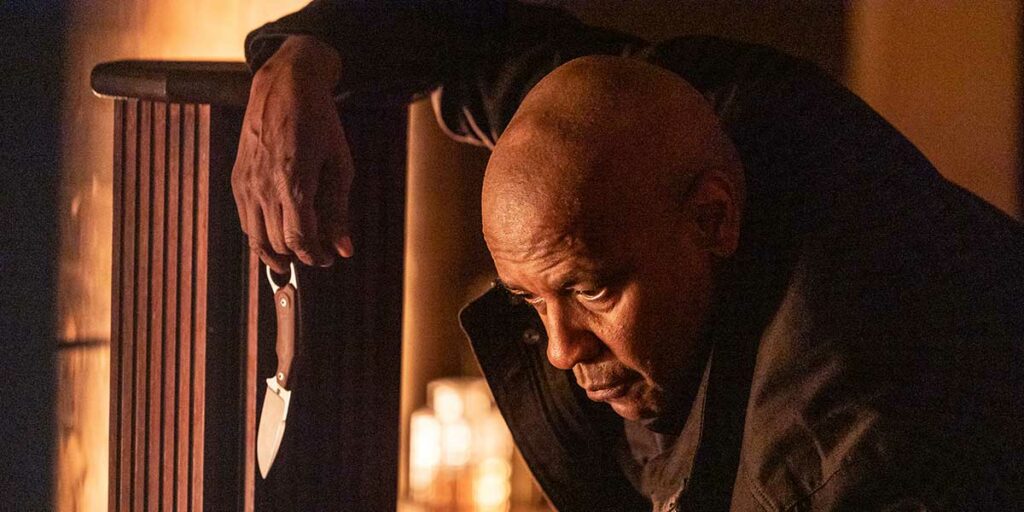While The Equalizer 3 is the most brutal and emotional of the trilogy, its attempts at studying its main character feel muddled at best.
From the opening scene, The Equalizer 3 establishes itself as the most violent film in the series. Antoine Fuqua’s trilogy capper starring Denzel Washington holds back none of its brutality, something that will surely excite fans of the franchise and action movie connoisseurs in general. However, the film also offers the most humanity and emotional moments of the trilogy, leading to an ultimately satisfying if uneven conclusion.
The story takes place in south Italy, where Robert McCall (Washington) has seemingly found a nice, quiet place to settle down and give up his equalizing ways. When local crime bosses begin causing trouble and terrorizing his new friends, McCall steps in as the town’s protector and avenger. The CIA also becomes involved when McCall leaves a tip to analyst Emma Collins (Dakota Fanning), bringing her to Italy to investigate.
Fuqua blends these two storylines together competently, drawing inspiration from other great action films and even throws in a moving “I am Spartacus” moment for good measure. He also directs the action in a way that feels more visceral. While he used some fun camerawork in the first two films, he increases the use of long takes and tracking shots, often to expose the audience to the aftermath of McCall’s killing spree. The opening scene is one such example, cycling through thugs with axes in their heads and slit throats to ultimately serve as the main man’s introduction. The brutality does not end there, though, as the movie sporadically gives the audience some ruthless action interlaced with softer character moments.
Fuqua and Washington infuse the character with more humanity than what was seen in the previous two films. Washington has always elevated these movies, and he especially does so here, giving his most comfortable performance as McCall. The fun he is clearly having beams from the screen. While Fanning is unfortunately not given much to do, the scenes she shares with Washington (in a Man on Fire reunion) are definite highlights.

This film struggles in much the same way The Equalizer 2 does in that it’s not sure how seriously or humanely to treat its main character. In an early scene, McCall is injured and spends some time walking with a cane as the small Italian town begins to feel like home to him. He even wrestles with the question of whether what he is doing is actually good. He replays some of his kills over in his head. The doctor who treats his wound asks him, “are you a good person?;” McCall replies, “I don’t know.” The moral dilemma is on display, but it is never fully explored. On the contrary, the film’s climax shows McCall not as a human struggling with his morality, but as an angel of death hovering menacingly over his latest victims. These victims are horrible people, no doubt, and probably deserve what they get at the hands of McCall, but the movie does not properly follow the thread of what it attempts to set up early on. The humanity and moral questioning come and go, leaving the film feeling ultimately muddled.
Shoot-em-up action enthusiasts will exude joy from The Equalizer 3’s amped-up action. Fans of one of the greatest stars of his generation will get to watch Washington terrorize bad guys one more time. The film is the most brutal of the bunch and the most emotional. So, few may care that it is also the most confused. Is McCall a human being, with questions and doubts and self-reflection? Or is he simply an Angel of Death? While this film gives him a happy ending, these questions remain unanswered.
The Equalizer 3 is out now globally in theaters.

